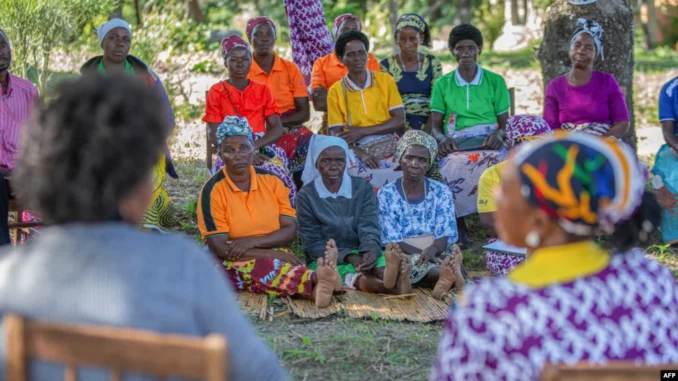
In Mozambique, nearly half of all women are married before they reach the age of majority, according to the United Nations. 22% are victims of violence, but few report it. This violence, which takes place in the home and on the street, has been punished by law since 2009, but its application has met with resistance, particularly in the countryside. And the country is still in 127th place on the UN’s gender inequality index.
According to UNICEF, three-fourths of Mozambicans resort to the people’s courts, particularly to settle cases of sexual violence. Local authorities are poorly trained to handle such cases.
Here, an all-female local police force, originally created to search and arrest women, has been converted since 2011 into a gender-based violence unit. Their mission, to arrest the aggressors while waiting for the arrival of police officers from the city located a good hour away from the bumpy track.
“Before, there was a lot of reticence on the part of men. But after ten years, by dint of talking, explaining, and raising awareness, violence has decreased,” says Elisa Eduardo, a member of the brigade launched by the local association Lemusica, which stands for “Stand up, women, and continue your journey.
Force is rarely used, most conflicts are settled by talking. The priority is to educate and assist the women rather than chase their tormentors.
Near the improvised jail where the latter are taken, a room has been set up. Victims can receive care and testify there, protected from the eyes and from reprisals. In the countryside, silence is the rule and abused women generally find little support from their families.
